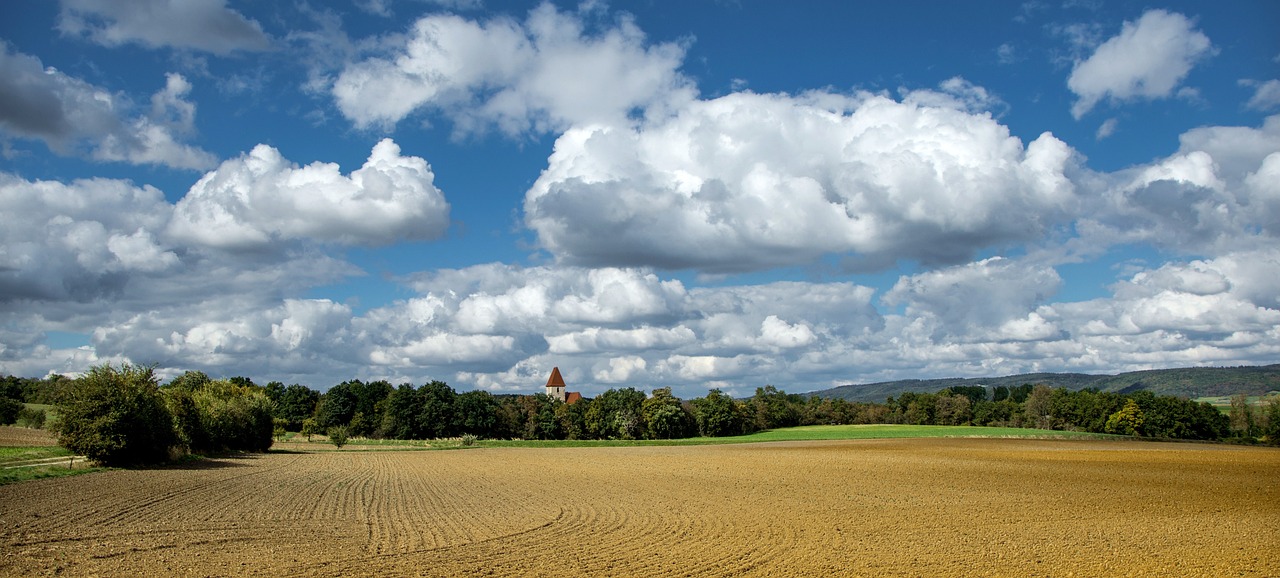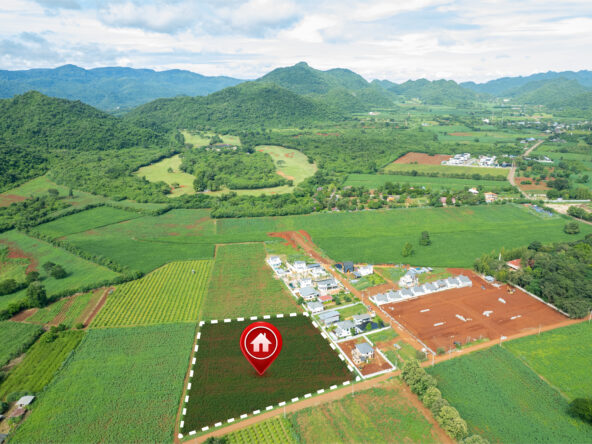Introduction
In the realm of real estate, the allure of luxury land investments has become increasingly enticing for savvy investors seeking high returns and prestigious ownership. This blog post will delve into the world of luxury land investments, exploring the benefits, types of opportunities available, key considerations, challenges, success stories, future trends, and valuable tips for aspiring investors.
Benefits of Luxury Land Investments
Investing in luxury land offers a myriad of benefits that extend beyond mere financial gains. Let’s delve deeper into the advantages that make luxury land investments an enticing prospect for savvy investors.
1. Potential for High Returns
One of the primary attractions of luxury land investments is the potential for high returns. Unlike traditional real estate, high-end properties often experience substantial appreciation over time. The exclusivity and desirability associated with luxury real estate contribute to a robust market, allowing investors to reap significant profits.
Tip: Understanding market trends, keeping an eye on emerging luxury markets, and leveraging the cyclical nature of real estate can help investors maximize their returns.
2. Prestigious Ownership and Status
Owning a piece of luxury real estate goes beyond financial considerations; it is a symbol of prestige and status. Prime residential properties in exclusive neighborhoods and custom-built mansions offer investors the opportunity to become part of an elite community. The social recognition that comes with owning a luxurious property can enhance an investor’s overall lifestyle.
Tip: Consider properties in renowned neighborhoods and collaborate with renowned architects to create bespoke, one-of-a-kind mansions that elevate the investor’s status.
3. Diversification in Investment Portfolio
Luxury land investments provide an effective means of diversifying an investment portfolio. Diversification is a fundamental strategy for risk management, and real estate, especially in the luxury sector, tends to have a lower correlation with traditional asset classes. This can enhance the overall stability of an investment portfolio.
Tip: Balance the portfolio by including luxury properties from various sectors, such as prime residential, commercial, and private islands, to ensure diversified exposure to different markets.
4. Passive Income through Rentals
In addition to capital appreciation, luxury land investments offer the potential for generating passive income through rentals. High-end residential properties and commercial spaces in prime locations attract tenants willing to pay a premium for the luxury experience. This creates a steady income stream for investors.
Tip: Optimize rental potential by ensuring that the property is well-maintained, equipped with premium amenities, and marketed to attract the target demographic.
5. Hedge Against Inflation
Real estate, including luxury land, has historically served as a hedge against inflation. As the value of money decreases over time, the value of tangible assets like real estate tends to rise. Luxury properties, being scarce and in-demand, can act as a valuable hedge, preserving and potentially growing wealth in times of inflation.
Tip: Keep an eye on economic indicators and inflation rates to strategically time investments and capitalize on potential appreciation.
6. Long-Term Appreciation
Luxury properties, by their nature, are often located in prime, high-demand areas. This positioning contributes to long-term appreciation, as the scarcity of such desirable locations ensures sustained demand. Investors with a patient, long-term perspective can benefit from the consistent growth in the value of their luxury land holdings.
Tip: Prioritize locations with strong growth potential, infrastructure development, and proximity to key amenities for sustained long-term appreciation.
7. Tax Advantages
Investors in luxury land may also benefit from various tax advantages. Deductions related to mortgage interest, property taxes, and depreciation can significantly reduce the tax burden associated with owning high-end real estate. Additionally, certain jurisdictions offer tax incentives to encourage real estate development.
Tip: Consult with tax professionals to optimize tax strategies and take advantage of available deductions and incentives.
In summary, the benefits of luxury land investments extend far beyond financial gains, encompassing social status, portfolio diversification, and passive income. By carefully navigating the luxury real estate landscape and leveraging these advantages, investors can position themselves for both short-term profits and long-term wealth preservation.
Types of Luxury Land Investments
Luxury land investments offer a diverse range of opportunities, each with its unique appeal and potential for high returns. Let’s explore the different types of luxury land investments that investors can consider to diversify their portfolios and capitalize on the exclusivity of high-end real estate.
1. Prime Residential Properties
a. Exclusive Neighborhoods
Investing in prime residential properties located in exclusive neighborhoods is a classic avenue for luxury land investments. These neighborhoods are characterized by their opulent surroundings, top-tier amenities, and a discerning community. Properties in these areas often command a premium due to their prestige and exclusivity.
Tip: Focus on neighborhoods with a history of sustained demand, proximity to cultural and recreational hubs, and limited availability of high-end properties.
b. Custom-built Mansions
Custom-built mansions provide an opportunity for investors to create unique, bespoke properties that stand out in the luxury market. Collaborating with renowned architects and designers allows investors to tailor the property to the preferences and lifestyles of high-net-worth individuals, enhancing its appeal.
Tip: Consider incorporating cutting-edge design elements, eco-friendly features, and advanced home automation systems to elevate the property’s value.
2. Commercial Real Estate
a. High-End Retail Spaces
Investing in high-end retail spaces within affluent districts is an attractive proposition. Luxury brands seek premium locations to showcase their products, and investing in such spaces can yield lucrative returns. The demand for exclusive retail spaces in prestigious locations remains consistently high.
Tip: Choose retail spaces in areas with high foot traffic, where luxury brands are likely to establish their presence, ensuring sustained demand.
b. Luxury Hotels and Resorts
The hospitality sector presents opportunities for luxury land investments, particularly in developing luxury hotels and resorts. As global travel continues to rise, the demand for exclusive accommodations with top-notch amenities and services creates a lucrative market for investors.
Tip: Focus on destinations with a growing tourism industry, and collaborate with reputable hoteliers to ensure the success of the venture.
3. Private Islands and Waterfront Properties
a. Appeal and Exclusivity
Private islands and waterfront properties epitomize exclusivity and luxury. The appeal of these properties lies in the privacy, breathtaking views, and the unique lifestyle they offer. High-net-worth individuals seeking a retreat from the ordinary are drawn to the allure of owning a private island or waterfront estate.
Tip: Emphasize the natural beauty of the location, and consider offering bespoke amenities such as private beaches, yacht docks, and personalized concierge services.
b. Potential for Development
Private islands and waterfront properties also present opportunities for development. Investors can capitalize on the potential for creating luxury villas, spas, eco-friendly resorts, or exclusive communities. The scarcity of such locations enhances their desirability.
Tip: Conduct thorough feasibility studies and environmental assessments before embarking on development projects to ensure sustainability and compliance with regulations.
In conclusion, the types of luxury land investments are diverse, catering to different preferences and investment goals. Whether it’s prime residential properties, commercial real estate, or private islands, each type offers a unique set of advantages for investors seeking to tap into the world of high-end real estate. Strategically selecting the type of luxury land investment that aligns with market trends and investor objectives is key to unlocking the full potential of these exclusive opportunities.
Considerations for Luxury Land Investors
Investing in luxury land requires a meticulous approach and careful consideration of various factors to ensure success and mitigate risks. Here are key considerations for luxury land investors to navigate the complex landscape of high-end real estate.
1. Location and Market Analysis
a. Demand and Trends
Thorough research into the demand for luxury properties in specific locations is crucial. Analyze market trends, demographic shifts, and lifestyle preferences of high-net-worth individuals. Identifying emerging luxury markets can provide investors with a competitive edge.
Tip: Collaborate with local real estate experts and conduct market surveys to gain insights into the demand dynamics of the chosen location.
b. Growth Potential
Assess the growth potential of the chosen location. Consider factors such as infrastructure development, planned amenities, and the overall economic outlook. Locations with sustained growth are more likely to provide long-term appreciation for luxury land investments.
Tip: Look for areas with upcoming developments, improved transportation links, and a positive economic outlook for sustained growth.
2. Legal and Regulatory Factors
a. Zoning Laws and Restrictions
Understanding local zoning laws and restrictions is paramount. Certain areas may have limitations on property development, building heights, or land use. Investors must ensure compliance with these regulations to avoid legal complications.
Tip: Engage legal professionals familiar with local real estate regulations to navigate potential legal hurdles.
b. Ownership Restrictions for Foreign Investors
In some regions, there may be ownership restrictions for foreign investors. Investigate whether there are any limitations on non-resident ownership of land and the associated legal requirements.
Tip: Consult with legal experts to understand any restrictions and explore legal structures that comply with local regulations.
3. Infrastructure and Amenities
a. Proximity to Key Amenities
Luxury properties should be strategically located near key amenities such as high-end schools, cultural institutions, shopping districts, and recreational facilities. Proximity to these amenities enhances the property’s value and appeal.
Tip: Emphasize the convenience and lifestyle benefits that come with the property’s location in marketing materials.
b. Quality of Infrastructure
Evaluate the quality of existing and planned infrastructure. Access to well-maintained roads, utilities, and essential services is critical for the desirability of luxury properties.
Tip: Consider infrastructure developments in the pipeline and assess their potential impact on the property’s value.
4. Environmental Impact and Sustainability
a. Environmental Assessments
Conduct comprehensive environmental assessments before purchasing or developing luxury land. Assessments should include factors such as ecological impact, water resources, and soil quality.
Tip: Invest in sustainable development practices and promote eco-friendly features to appeal to environmentally conscious investors.
b. Compliance with Green Building Standards
Explore opportunities to comply with green building standards. Sustainable and energy-efficient designs can not only benefit the environment but also attract a niche market of eco-conscious buyers.
Tip: Highlight green features such as solar panels, energy-efficient appliances, and eco-friendly construction materials.
These considerations form the foundation for informed decision-making in luxury land investments. By carefully assessing the location, legal landscape, infrastructure, and sustainability factors, investors can position themselves for success in the dynamic and exclusive world of high-end real estate. Engaging with local experts and staying attuned to market trends will further enhance the likelihood of a profitable and sustainable luxury land investment.
Challenges in Luxury Land Investments
1. Market Volatility
The luxury real estate market, like any other, is susceptible to market volatility. Economic downturns can impact high-end property values, requiring investors to adopt a long-term perspective and strategic planning.
2. Economic Factors
Global economic factors can influence the demand for luxury properties. Changes in interest rates, currency fluctuations, and economic uncertainties can pose challenges for investors, necessitating a keen understanding of economic indicators.
3. High Initial Investment Costs
The barrier to entry in luxury land investments is often high, with substantial upfront costs. Investors must carefully assess their financial capabilities and risk tolerance before committing to high-end real estate ventures.
Future Trends in High-End Real Estate
1. Emerging Markets and Destinations
As global dynamics shift, new emerging markets and destinations for luxury land investments are continually emerging. Investors should stay attuned to geopolitical trends, economic developments, and changing consumer preferences to identify the next big opportunities.
2. Sustainable Luxury Development
The rise of eco-conscious consumers has led to a growing demand for sustainable luxury developments. Investors can explore eco-friendly designs, green technologies, and environmentally responsible practices to align with evolving consumer values.
3. Technology Integration in Luxury Properties
Technology is transforming the luxury real estate landscape. Smart homes, virtual reality property tours, and blockchain for transparent transactions are just a few examples of how technology is enhancing the luxury property experience.
Tips for Aspiring Luxury Land Investors
1. Conduct Thorough Research
Thorough research is the foundation of successful luxury land investments. Analyzing market trends, studying potential locations, and understanding the preferences of high-net-worth individuals are critical components of informed decision-making.
2. Seek Expert Advice
Engaging with real estate professionals, legal experts, and financial advisors with experience in luxury land investments is invaluable. Their insights can help navigate complex legalities, identify prime opportunities, and mitigate risks.
3. Stay Informed about Market Trends
The luxury real estate market is dynamic and subject to evolving trends. Staying informed about market trends, consumer behavior, and global economic shifts ensures that investors can adapt their strategies and capitalize on emerging opportunities.
Conclusion
In conclusion, luxury land investments offer a gateway to a world of exclusivity, prestige, and financial rewards. Whether investing in prime residential properties, commercial real estate, or private islands, the key lies in meticulous research, strategic planning, and a long-term perspective. As the luxury real estate landscape continues to evolve, staying attuned to market trends and embracing sustainable and technological advancements will position investors for success in this dynamic sector. Aspiring luxury land investors, armed with knowledge and expert guidance, can embark on a journey to unlock high-end real estate opportunities and redefine their investment portfolios.




